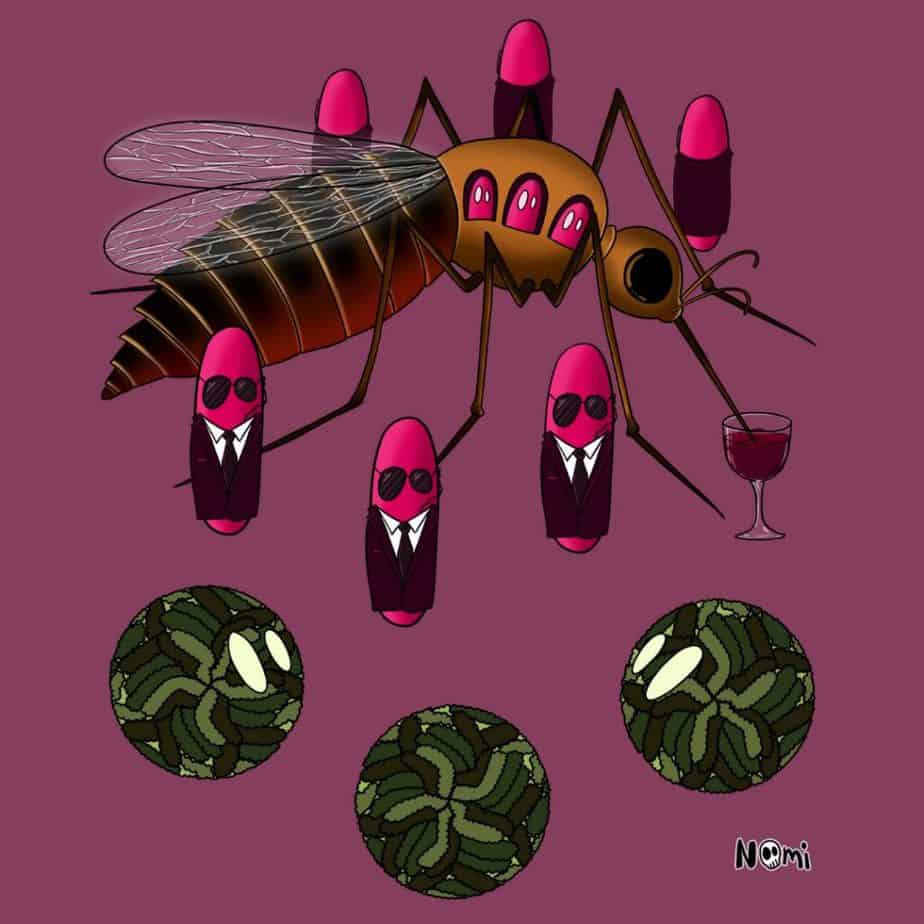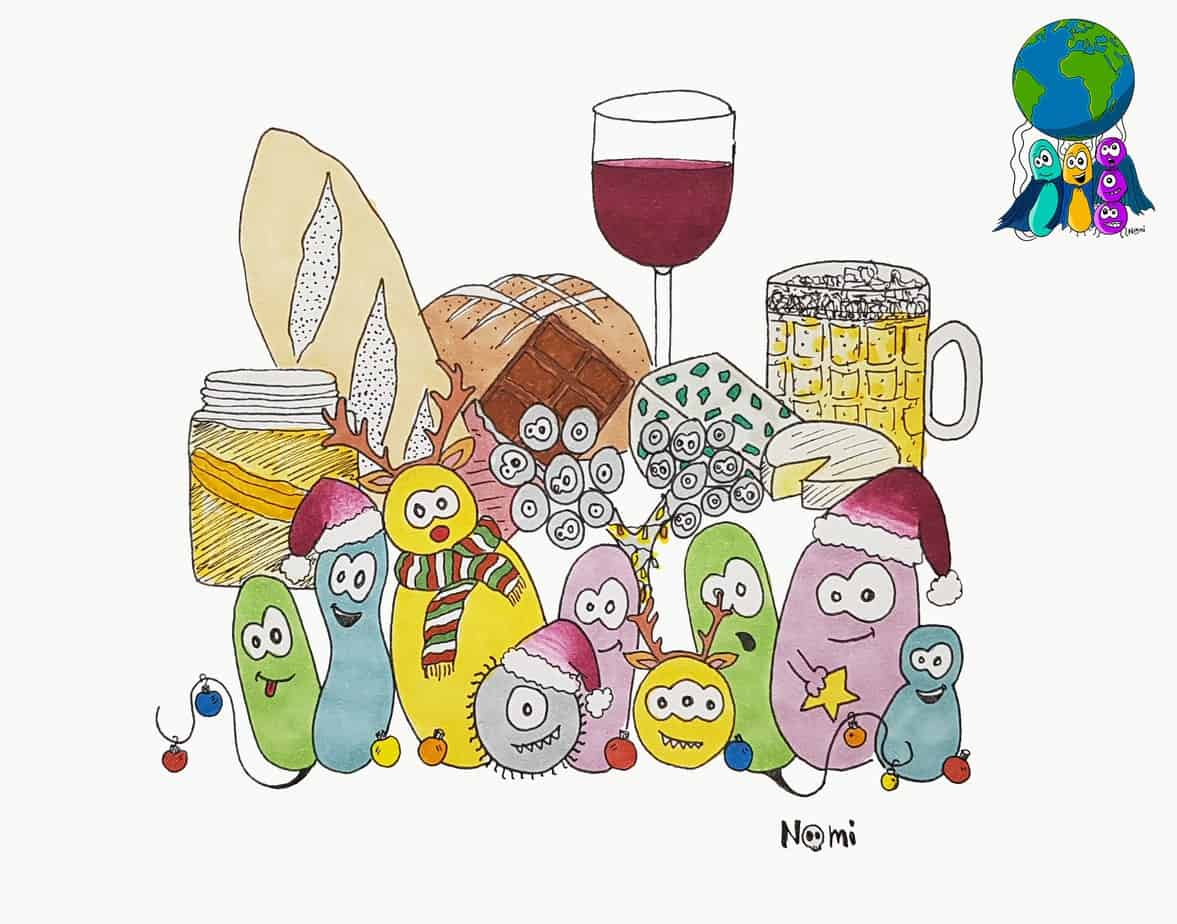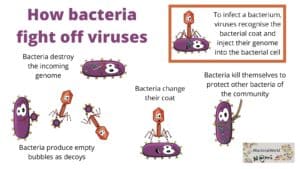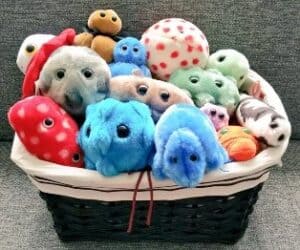The microbial world is highly connected within itself and with its surrounding. Viruses infect bacteria, plants, animals or humans. Bacteria fight off viruses, but can also live within plants, animals and humans.
And while both viruses and bacteria can live within the same plant, animal or the human body – the so-called host – they can have completely different impacts on them.
A virus infection always has negative effects on the host.
In comparison, the interactions between bacteria and their hosts can be harmful or beneficial for both sides. While pathogenic bacteria harm their hosts, the host usually has a defence system to fight off these harmful bacteria.
However, often both bacteria and host gain from this interaction and form a type of symbiosis. For example, our gut bacteria are getting fed by what we eat. And as a thank you, they produce molecules or hormones that improve our health, immune system and even mood.
In special cases, these symbiotic bacteria even protect their hosts from other harmful microbes like viruses. For example, bacteria in and on our bodies fight off pathogenic microbes.
And the same happens in insects: The bacterium Wolbachia pipientis usually lives within insects and forms a symbiosis with its host. This protects the host from nasty virus infections.
Here we will look at how the bacterium does that and how we could use this symbiosis to fight off viruses ourselves.
Wolbachia pipientis protects insects from viruses
For a virus to grow and spread, it always needs a host and their cells to produce the virus. But when cells produce viruses, they lose energy, nutrients and get sick from the virus or even die. Hence, a virus infection is always harmful to the producing cell and thus the host.
And some viruses can only infect and grow in insects. Gladly, the bacterium Wolbachia can protect insects from some nasty viruses.
One way to do this is that the Wolbachia bacteria stop the virus from entering the insect cells. For this, the bacteria live on the inside of the cell close to the cell membrane. Here, they eat part of the lipids of the membrane and change what the membrane looks like on the outside.
From the outside, the virus cannot recognise the changed membrane and will not bind to it. Like this, the virus will not even enter the cell and the cell is protected from the virus.
Also, Wolbachia strengthens the immune system of insects. This helps the insects fight off the virus to keep them healthy and virus-free.
And some Wolbachia bacteria even eliminate viruses from host cells. However, it is not completely clear yet, how the bacteria achieve this.
Interestingly, different Wolbachia strains are differently effective against different viruses. This is really helpful for us since we could use these bacteria and their superpowers to keep us virus-free as well.
Using Wolbachia to protect us from Dengue fever
We all know how annoying mosquito bites are. But now imagine, when an infected mosquito bites us. The mosquito transfers those annoying toxins into our bodies that give us that terrible itch.
But when that mosquito is infected with a virus, it will also transfer that virus into our body. And unfortunately, many viruses from mosquitos cause dangerous diseases like Dengue fever, West Nile fever, Yellow Fever or Zika. Often, the infected person suffers very badly from this disease or even dies.
This is why researchers want to use the Wolbachia bacteria to protect us from these diseases. For this, they grow mosquitos in the lab and infect them with the Wolbachia bacteria. They then release these mosquitos into the environment – and here we’re talking around 30.000 mosquitos in one go. Can you feel the mosquito itches already on your skin?
These mosquitos then mix with the mosquitos in the environment so that the Wolbachia bacteria spread throughout the whole mosquito population. Now, Wolbachia protects the mosquitos from viruses like the Dengue virus.
And this also means keeping the Dengue virus away from us. And yes, researchers found that fewer people got infected with the Dengue virus after they release their lab-grown mosquitos. What an amazing way to protect us from these nasty viruses and their diseases!
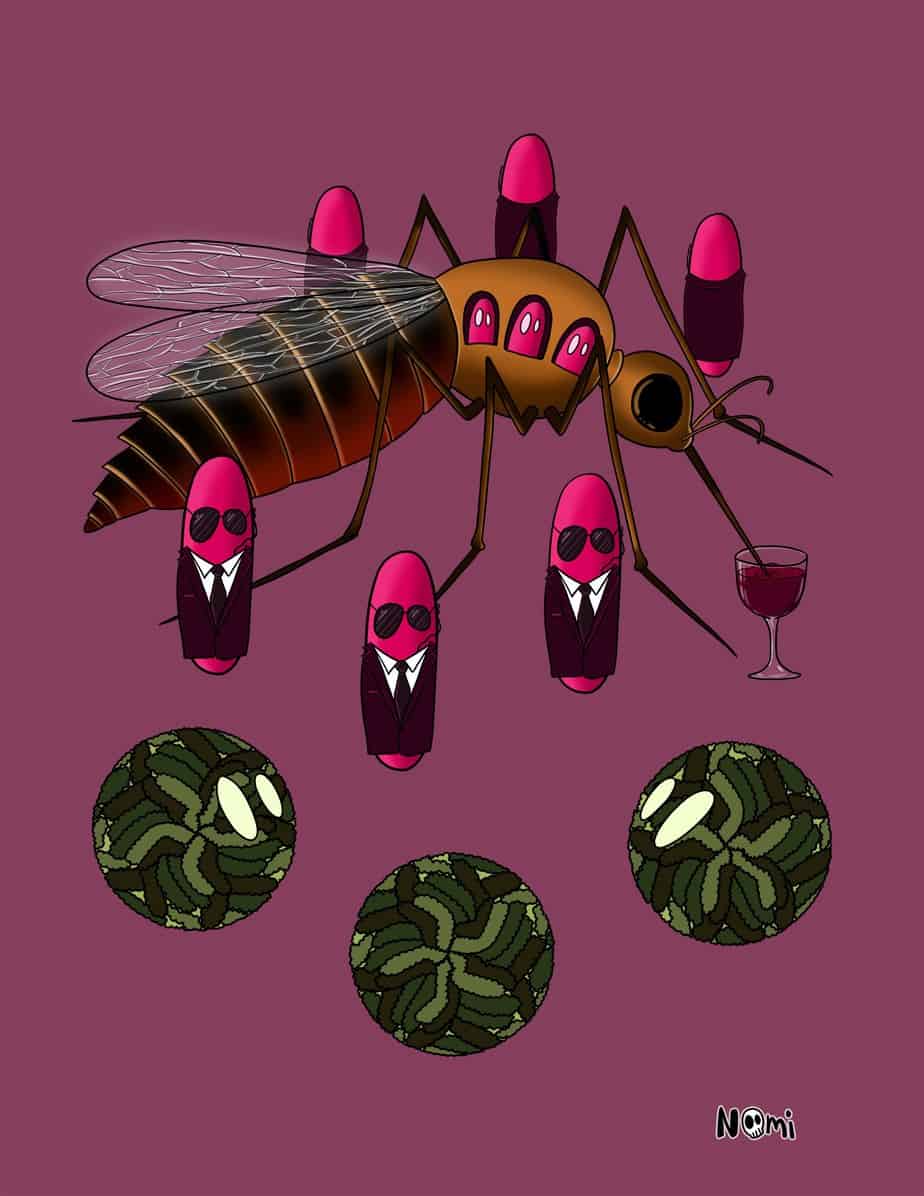
Researchers also try to use these bacteria and their superpowers to protect us from other pathogenic microbes, for example, the Malaria-causing microorganism. I just hope that at the same time, they are looking for ways to make these annoying mosquito bites less itchy…

